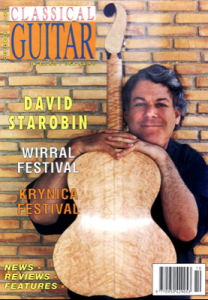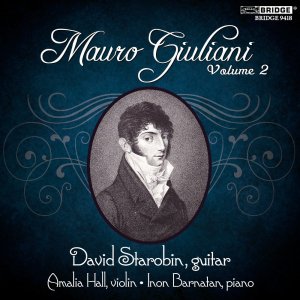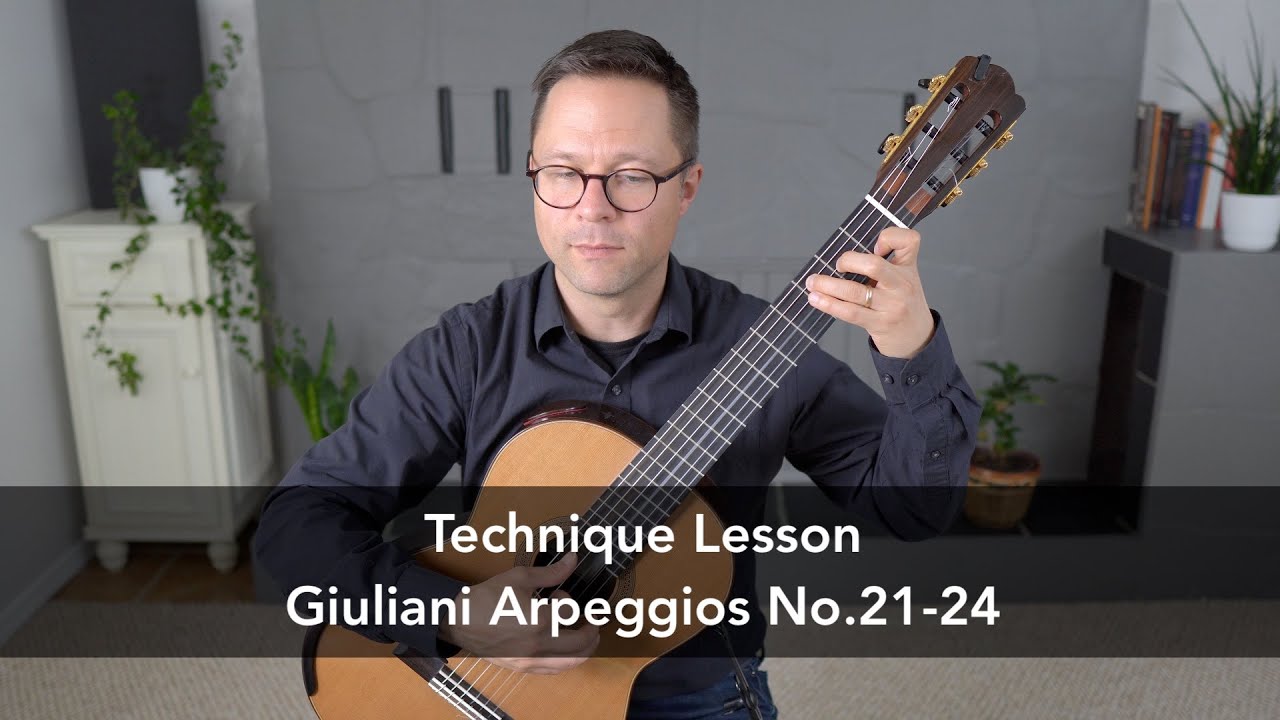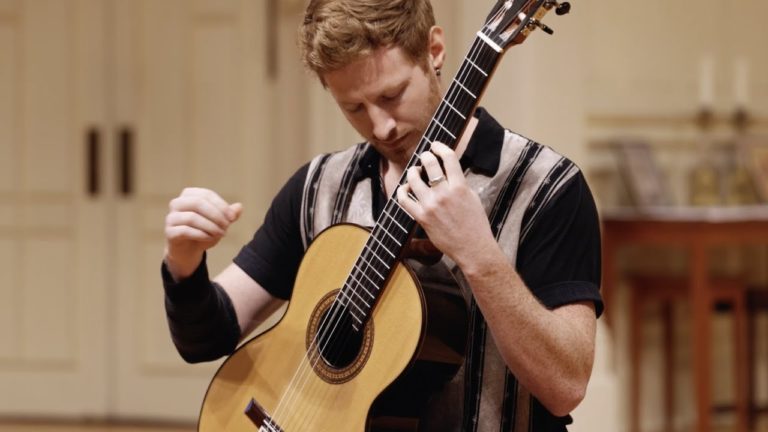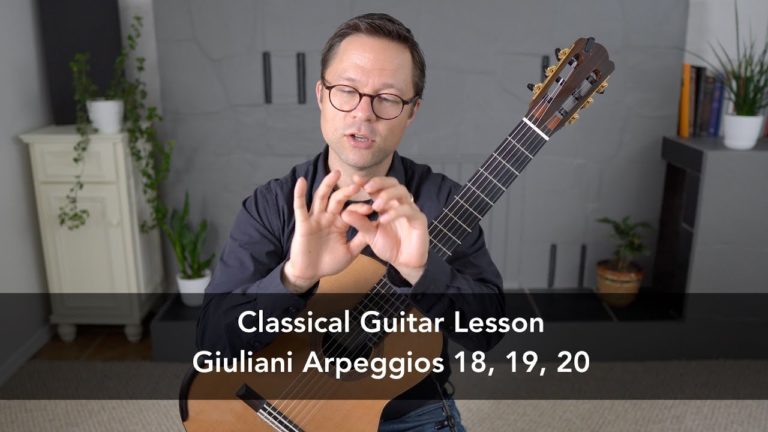A big thank you to legendary guitarist David Starobin for doing this interview! I first became familiar with Starobin through his recording of Elliot Carter’s Changes as well as Mario Davidovsky’s Synchronisms No. 10. I then came to know his countless commissions of new music by some of the century’s greatest composers. I also became familiar with Bridge Records and their countless contributions and recordings. I later discovered his recordings of period music such as Giuliani and was overjoyed yet again. So it is with great personal pleasure that I present the following interview.
Biography via Bridge Records:
David Starobin (b. 1951, New York City), was called “arguably the most influential American classical guitarist of the 20th Century” by Soundboard magazine. Starobin is the only guitarist to have been awarded Lincoln Center’s Avery Fisher Career Grant (1988), was honored by Peabody Conservatory of Johns Hopkins University with its “Distinguished Alumni Award” (1999), and was inducted into the Guitar Foundation of America’s “Hall of Fame” (2011). Starobin began playing the guitar at the age of seven, studying with Manuel Gayol and Aaron Shearer. He tours internationally as a recitalist, chamber player and orchestral soloist, and has directed guitar programs at Brooklyn College, Bennington College, the North Carolina School of the Arts, SUNY/Purchase, and the Manhattan School of Music, where he was holder of MSM’s “Andres Segovia Chair”. In 2010, Starobin took up the “Fondation Charidu Chair in Guitar Studies” at the Curtis Institute of Music (Philadelphia), where he currently teaches. In 1981 Starobin founded the recording company, Bridge Records. As performer, producer and executive producer, Starobin and Bridge have won three Grammy awards and received 25 Grammy nominations.
Interview, via email, November 13th, 2013
Between Bradford Werner & David Starobin
Bradford Werner: You have had a colossal career of commissioning and championing new music, can you tell us about one of the fondest memories from over the years in relation to commissioning, performing, or recording a work?
David Starobin: An early and important commission for me was Elliott Carter‘s “Changes“. I was a fairly young working musician and certainly didn’t have the financial resources to pay Elliott the fee that a composer of his stature deserved. He was very kind, and agreed that his commission would be the modest amount that I was scheduled to be paid for the two premiere performances (at the Library of Congress, and in New York City, at celebrations of Elliott’s 75th birthday). Right after the concerts I sent Elliott his payment. About a month later I received a letter in the mail from the Fromm Foundation of Harvard University. The letter read something to the effect of: “through the generosity of Elliott Carter, we are sending you a grant in recognition of your contributions to contemporary music.” This act of kindness has always stood as a lesson to me, and I have tried, in my own small way, to help younger musicians along, as I was able to.
BW: You’ve recorded music from Crumb, Lansky, Carter, Machover, and more, can you recall the most challenging new music project/work you’ve ever undertaken?
DS: I’m pretty sure it would be the second guitar concerto by Poul Ruders— his stunning “Paganini Variations“. Among other difficulties, this piece has a lot of very rapid passage work above the 12th fret. I fingered and learned the piece on a fairly standard instrument, later coming to the realization that the piece would flow much more musically if I had an instrument with a cutaway. The English luthier Gary Southwell built me that instrument, and the guitar helped tremendously in my ability to phrase the piece naturally. Another reason that this piece was so challenging was that it carried the unmistakeable feel of a true masterpiece. When one finds such inspiration and brilliance in a composition, it inspires the performer to find the best possible solutions and interpretation.
BW: You recently came out with a new recording of Giuliani and also have been performing a number of Matiegka’s works live. What draws you to period guitar work amidst all the new music work?
DS: Much of the music on that Giuliani disc is performed on modern guitars, though some was played on a 1923 Herman Hauser guitar built in the old Viennese style, with adjustable action. These days I am often playing on modern guitars, even for 19th century music. I have learned a lot from playing on older instruments. Hopefully some of this comes through on the modern guitar performances.
As far as why I like playing the 19th century repertoire, it’s simply what I’ve done throughout my guitar-playing life. And I’m still discovering new “old” pieces that connect the guitar to the great classical and romantic tradition. Unlike the piano repertoire, where most of the masterpieces have been published, digested, performed, and recorded, our knowledge of the guitar repertoire is still growing. In the end, for me, there’s not much difference at all between pursuing either side of the menu.
BW: What have been some of the ups and downs of having a foot firmly in two worlds, that of new music and period guitar work?
DS: The ups are all about experience and knowledge. Becoming a broader musician. The biggest down was when I’ve had to travel on planes with two guitars!
BW: Many people find it difficult to seek out new music guitarists and composers, can you recommend some players and/or composers who are doing exciting work for guitar?
DS: There are so many today. This is why the scene is so vital. I’ll speak here about a few composers who have written for me. First, the Danish composer Poul Ruders. He has written solos, two concertos, and wonderful chamber music. Ruders has a very individual voice, and composes for a highly skilled player. Paul Lansky has also made a terrific contribution to the guitar literature. A piece like Lansky’s “Partita” fuses jazz elements with savvy compositional skills in a very persuasive manner. Lansky has also composed a beautiful guitar concerto, “With the Grain”. William Bland is another composer that has written a great deal of valuable guitar repertoire. He’s currently at work on a set of Madrigals for soprano and 4 guitars. Bland’s set of 48 Preludes (a double set of pieces in all of the major and minor keys!) is full of little gems.
BW: Can you recommend a new music organization to join or keep an eye on?
DS: Newmusicbox.org has consistently well written articles and is a site well worth taking a look at. And I’ve read “Tempo” magazine for decades. It’s a quarterly, published in England, that has news, reviews and terrific analytical pieces on a wide range of contemporary composers. As far as guitar-centric writing goes, the Italian guitar journal, Il Fronimo has led the way for decades, and shows no particular preference for any corner of the instrument’s history.
BW: If you had to recommend three albums to check out from Bridge Records, what would they be and why?
DS: That’s like choosing more than 400 of my “children” NOT to recommend. Tough job. As this is a guitar site, I’ll make my choices recent guitar discs. One would be “The $100 Guitar Project” (BRIDGE 9381A/B). This 2-CD set features dozens of guitarists of every stripe- classical, jazz, rock, you name it- all composing a short piece on a cheap electric guitar, which was shipped around the world over a two year period. It’s a very fun recording, and gives a very wide view of how guitarists make music, all given the same very basic equipment. And the CD’s proceeds go to charity. I’m very happy with my recent Mauro Giuliani, Vol. 2 (BRIDGE 9418), which includes solo works as well as two important Giuliani chamber pieces: the 2 Rondos, op. 68 for guitar and piano; and the terrific set of Variations, op. 24a, for violin and guitar. The Guitalian Quartet, four Italian guitar soloists who have banded together to play contemporary Italian music for guitar quartet, have recently made a fine disc for us (BRIDGE 9401).
BW: What can we expect to see from David Starobin or Bridge Records in the future?
DS: Personally, I’ve started on a solo Matiegka disc. Matiegka’s music can be spectacularly good, and has been a revelation for me. As far as Bridge Records goes, we will soon release Vol. 16 of our complete George Crumb edition, and are starting in on Vol. 17. Last time I looked, we had more than 40 projects in various stages of production, so I have my work cut out for me.
BW: If you had one piece of advice for youth guitar students and/or composers, what would it be?
DS: Follow a path that you’re passionate about. Our field rarely yields much in the way of fiscal reward, so you need to be in love with what you’re doing!
End of Interview.
Media:
See more info:
Buy or listen to samples of David Starobin’s new recording: Mauro Giuliani, Volume 2

